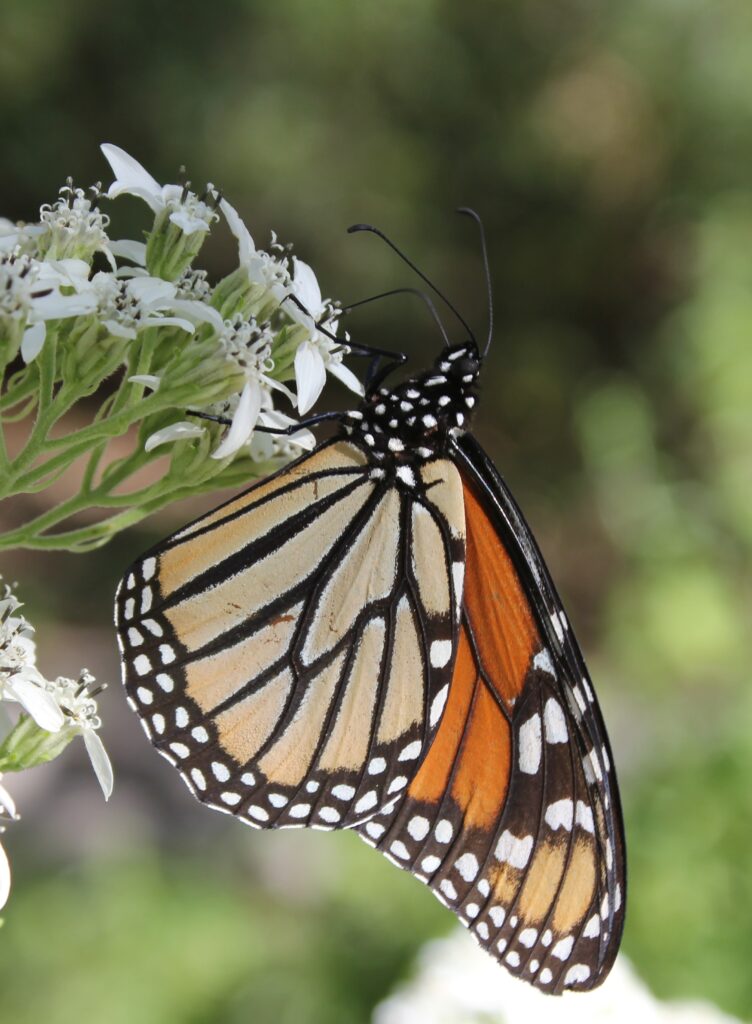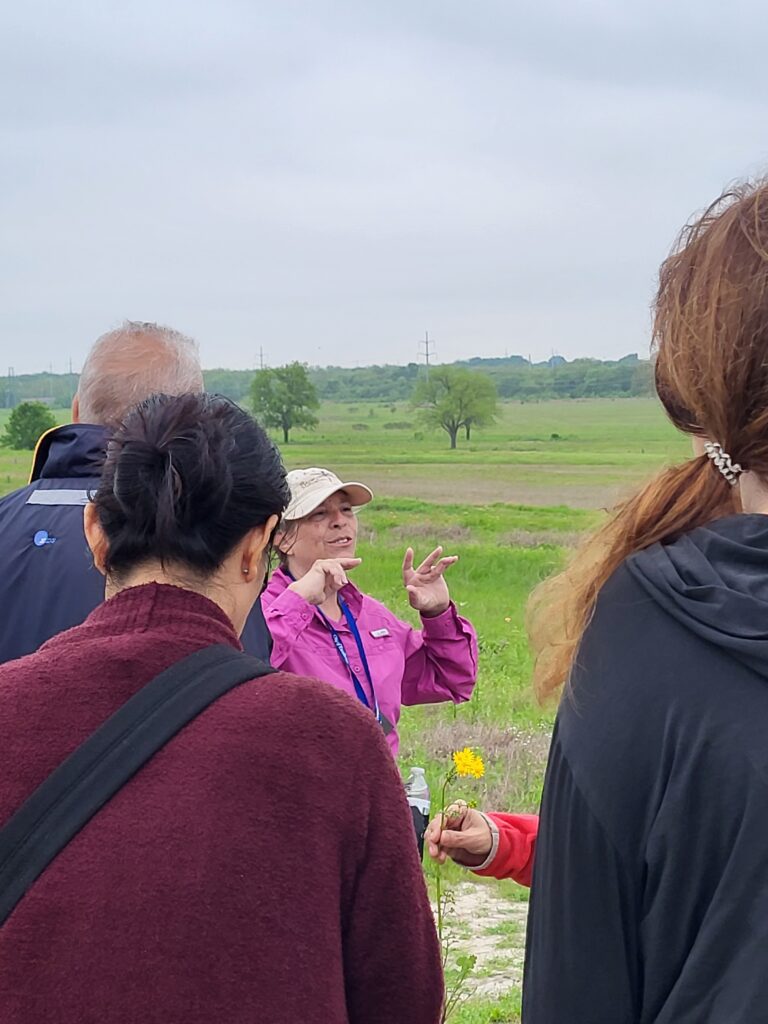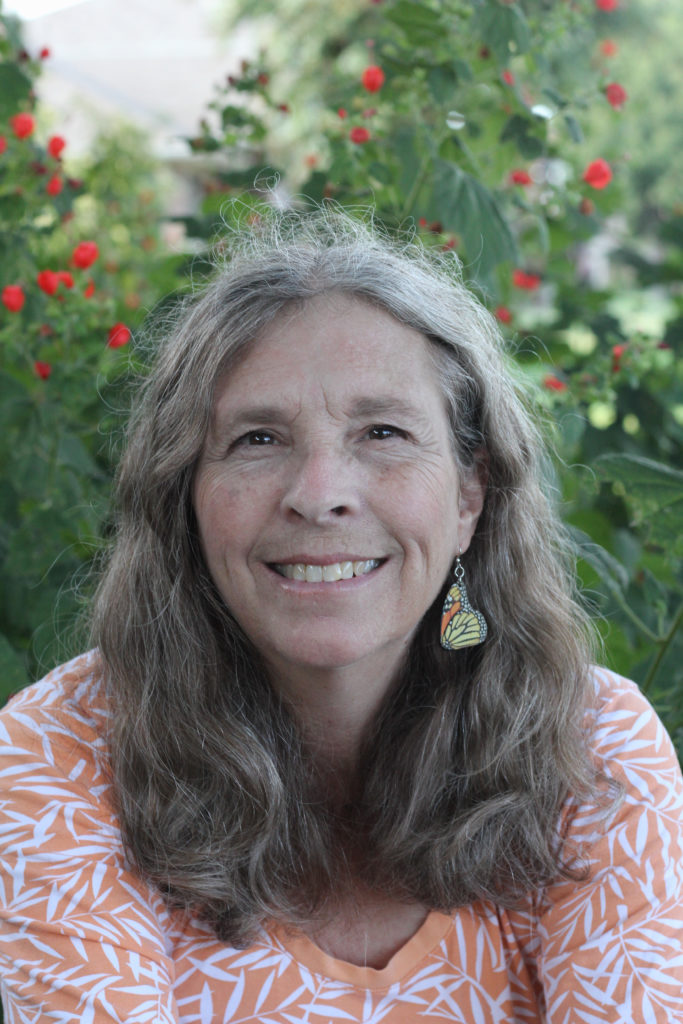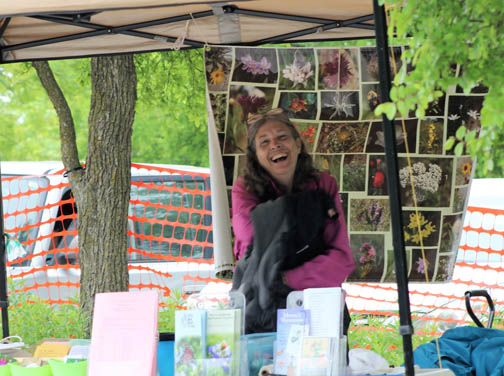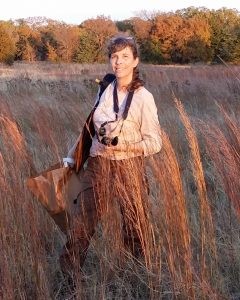Carol Clark, Class of 2010
It worked! With a small starter grant from the Blackland Prairie chapter, a successful workshop series was born. To date, we’ve trained over 300, mostly local nature educators, and more workshops are planned for the future around the state.
The grant provided money for us to test the concept with an initial order of 16 poster sets, which were laminated and then mounted on plastic backing boards for a durable and waterproof product.
We produced a poster set with insider and quantity discounts, representing a $50 value for around $22.
Years ago, my boss at Monarch Watch, Chip Taylor, came down from Kansas to work a Monarch Watch booth at a huge Earth Day event. As a new-ish Monarch Watch Conservation Specialist at the time, I talked to people, but I mostly watched as the great man himself effortlessly told the Monarch story to anyone passing by. I realized that I knew a lot of facts but couldn’t present them effectively within the limited time.
In the years since then, I’ve practiced a lot at Master Gardener shows, garden tours, school gardens, cemeteries, nurseries, festivals, backyard scout meetings, and even at a place that had a power outage when I was scheduled to give a PowerPoint talk. Somewhere along the line, it got easy.
Last year, I realized I could help others get comfortable delivering Monarch information, too. Texas is critical for Monarchs’ survival, and Texans need more Monarch educators who could fill all the requests for short, simple talks to engage the public in low-tech spaces.
With this concept in mind, I developed a “Train the Trainer” workshop that trained educators to use just two posters to teach about the Monarch life cycle and migration and emphasize the crucial nature of Texas to these fantastic animals.
The two-hour workshop consists of a fact-loaded PowerPoint for the first 45 minutes, followed by a question-and-answer period. After the extended version, I introduce the “Bare Bones” script and demonstrate how to give a stripped-down version with all the basics in 2 minutes. Why 2 minutes? At some events, that’s all the time you’ll have to engage with passersby. Educators can always poke more facts into their talks if they have more time, and ideas on expanding the bare bones are included. Participants then get to practice with their script and ask more questions.
Workshop attendees at the pilot workshop took home a set of the mounted posters to keep and use.
Within one week of the pilot workshop in October 2024, I saw social media posts of our posters being used as envisioned at outdoor events in the Metroplex. Feedback from the workshops was uniformly positive, and even experienced educators said they learned new things and felt more comfortable sharing what they knew.
I want to thank those who helped facilitate the two large virtual workshops and poster distributions that followed the grant-funded pilot workshop. Tom Kirwan, Elise Spain and Katey Pirot from the Elm Fork chapter embraced the concept and took on massive administrative and poster assembly tasks to free me up to concentrate on teaching.
The two virtual workshops were a mix of our people, their people, and some folks from far-flung places. Tom set up a system in cooperation with the Native Plant Society of Texas’s Bring Back the Monarchs to Texas to allow workshop participants to acquire a poster set by donating the equivalent of the assembly costs, making the posters a revenue-neutral project for the Native Plant Society.
Thanks also to the grant committee, who allowed me to try this without breaking my piggy bank.
What’s next? I’ll be taking the workshop on the road, starting in Clear Lake in May, and possibly offering it at the Master Naturalist annual meeting if it is approved. Several Native Plant Society chapters have inquired, too.
Let me know if you know a group that could benefit from this workshop—it’s ready to roll. You can reach me at [email protected].
Carol Clark,
BPTMN class of 2010, Monarch Watch Conservation Specialist, and chair of the Bring Back the Monarchs to Texas committee of the Native Plant Society of Texas.
